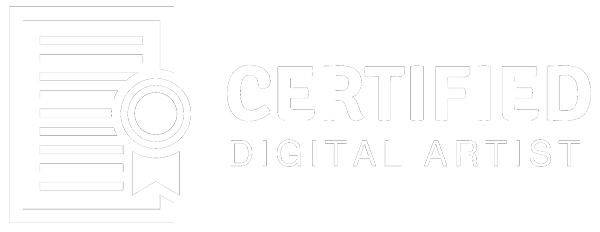Gaëlle Seguillon, a graduate of ArtFX, is a concept artist and matte painter with over 7 years of experience in the movie and video game industry, currently working at Quantic Dream in France. Over the last few years, she had the opportunity to work with amazing companies like ILM, BBC, Lucasfilm and Quantic Dream. She is known for her work on Guardians of the Galaxy Jurassic World : Fallen kingdom, Aladdin and Ready Player One.
The Journey
What's your current role and what does it involve?
I am concept artist. My role is to visualise ideas and create art to help define the look and artistic direction of a movie or video game. The concepts will be used to communicate with modelers, animators, and the VFX team to help them make these ideas ready for production. It’s a challenging but very exciting job!
Where do you work, and what type of projects are they involved with?
I currently work at Quantic Dream, a french video game company known for titles like Heavy Rain, Beyond two souls and Detroit. They are involved in making AAA games with an emphasis on interactive storytelling and multiple endings.
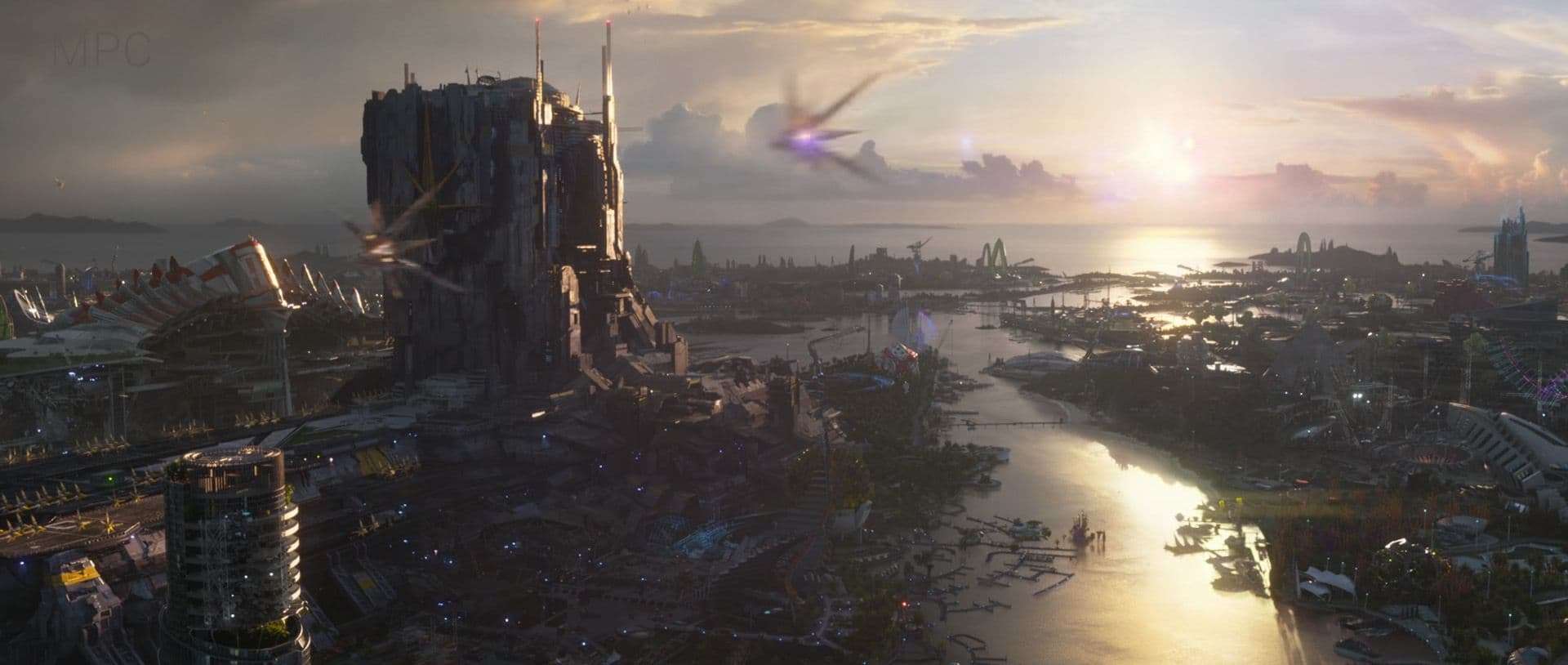
When did you first realise you wanted to work in this industry?
I have been drawing since as far as I can remember and I always loved movies but doing art for movies never came to my mind when I was a kid because I didn't know that those jobs even existed. To my younger self, working in art was limited to painting on canvas or illustrating books. The realisation only came to me when I was a teenager, that I could create imagery for films. I had a big interest in watching the making of movies.
I was fascinated to see how movies were made and the beautiful artwork that was created. Especially those for Star Wars and the Lord of the Ring. That’s when the idea of working in VFX started to blossom. It just seemed like a distant dream and a crazy idea back then. It seemed like an unachievable goal for me at the time.
How did you get your first big break?
Everything came very quickly, right after I graduated from ArtFX. At the end of my scholarship at ArtFX, our graduation movies were presented in front of a jury panel with some of the biggest VFX companies and my work got noticed by companies like MPC and Framestore. I had an interview with them and in the following weeks both companies offered me a job as Junior Matte Painter to work on Guardians of the Galaxy. I started at MPC a month later and my career kickstarted like that. It was an amazing experience to work on Guardians of the Galaxy as a first job!
Describe the journey you took into your current role?
I was working as a Matte Painter at MPC but during that year working on Guardians of the Galaxy, I also had the opportunity to do some concept art for the art department. It happens sometimes when the art department is too busy that they ask the DMP (digital matte painting) team to help out because the work and techniques are very similar. I had the chance to design some buildings for the movie. That experience made me realise that I preferred concept art to matte painting and from that moment it was going to be my career goal.
I didn't feel ready at the time to integrate an art department, so after MPC I multiplied my experiences in different companies such as Dneg, Framestore and Animal Logic, where I had the chance to work on many amazing project as a matte painter and sometimes concept artist. In the meantime I was building myself a portfolio with personal concept artworks because my goal was still to integrate into an art department someday.
The opportunity came to me when I was at Animal Logic in Sydney. I was contacted by ILM to join their art department. I couldn't believe it! They liked my work on Artstation, I had an interview and about two month later I was part of the art department team. It was a big shift in my career, it was hard but so rewarding. I learned so much that year and the team was amazing. I have been working as a concept artist since then and after 2 years at ILM I went to Jellyfish picture to work on a specific project for BBC. I then made the decision to freelance. It has been a year now of freelancing, working on set for Lucasfilm, then BBC and now on my first video game at Quantic Dream.
Day in the life
Describe a typical day for you and your team?
It's a tough question because my days are very different as a freeelance artist working from home compared to when I was in a studio.
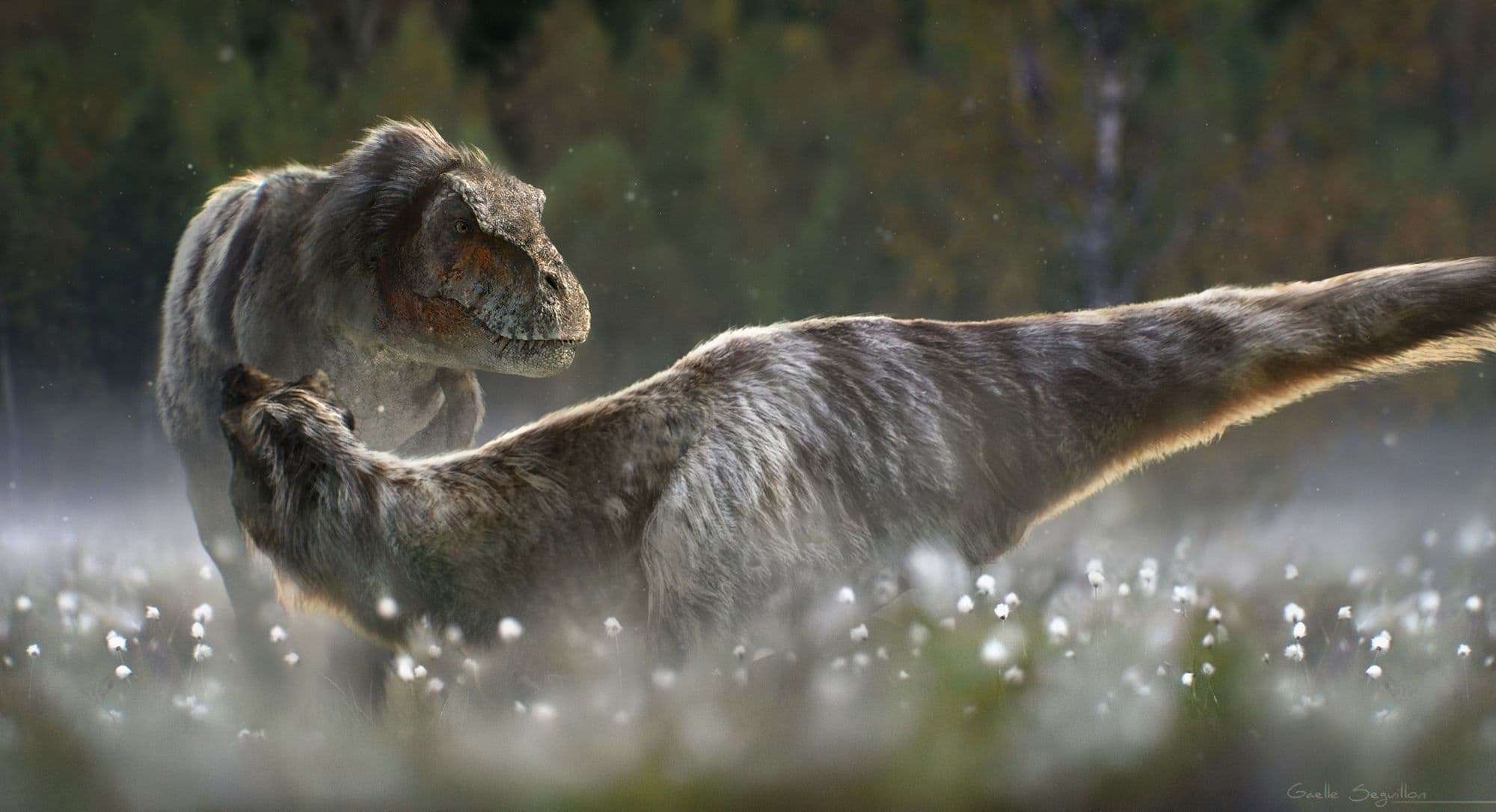
A typical day in a studio would start with a breakfast at work exchanging with teammates. Then the day is spent mostly working on our sequence with visits from the Art director to check where we are and if we need help. We usually have a meeting every day with the team. The VFX supervisor would call a "Daily" where we share with him our work in progress and get feedback and notes. Those meetings a more or less formal depending on the company you work for.
What third-party and proprietary tools do you use on a daily basis?
On a daily basis I use Photoshop, Blender and Octane Standalone to render my scenes. I don't use any specific plugin. I also use Pureref a lot, to gather my references and create mood boards.
Which departments and key people do you work closely with?
In post production, you work closely with the VFX supervisor of the project and with many departments like lighting, layout, environment, modeling, fx or compositing, because your work can be helping any of those department.
In pre-production we usually work with the on-set team or the writing team because it's all about generating ideas. You can also be lucky to work with the production designer or the Director.
It's a very versatile job.
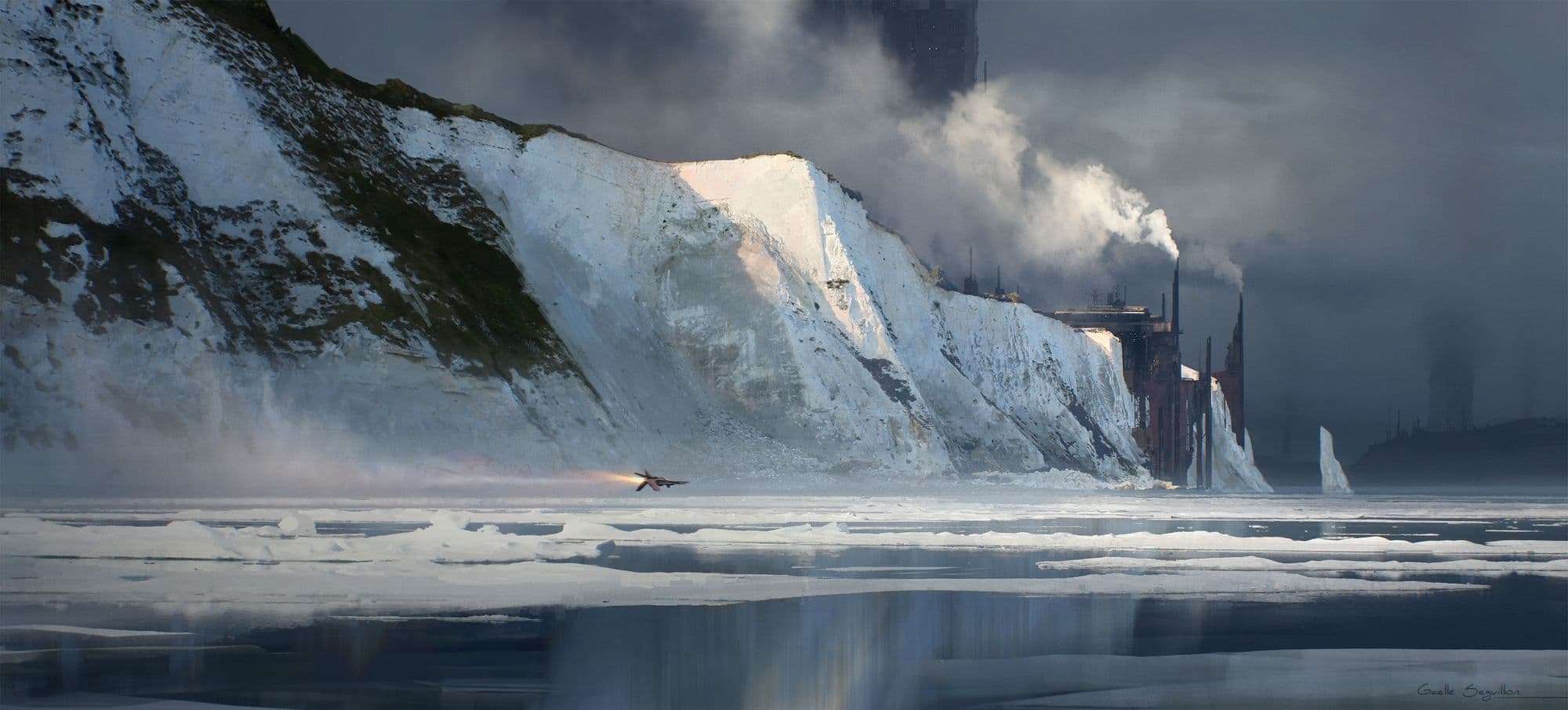
Are there any industry trends that are changing the nature of your role?
There are industry trends like Virtual Reality but I don't think it will change the nature of the job. Concept artists used to work traditionally with acrylic, ink or pencil sketches which is progressively replaced by digital techniques like digital painting and photo manipulation. Now we use more and more 3D but the core of the job stays the same, to communicate ideas and designs. The only thing that changes is the tools we use for that.
One thing you’d never change about your job?
Sharing and exchanging with my team. The creative vibes and the amazing people I have and had the chance to work with.
But one thing you wouldn’t mind seeing changed is?
There is nothing I would change really, I love every part of my job.
Career Advice
Is formal education essential for someone aspiring to do your job?
I don't think so. ArtFX gave me a solid knowledge of the VFX workflow and helped me getting noticed and breaking into the industry but it's also possible to achieve that by yourself with time and perseverance. There are plenty of quality tutorials and online formations out there and you can get noticed by posting and sharing your work on platforms like Artstation and The Rookies.
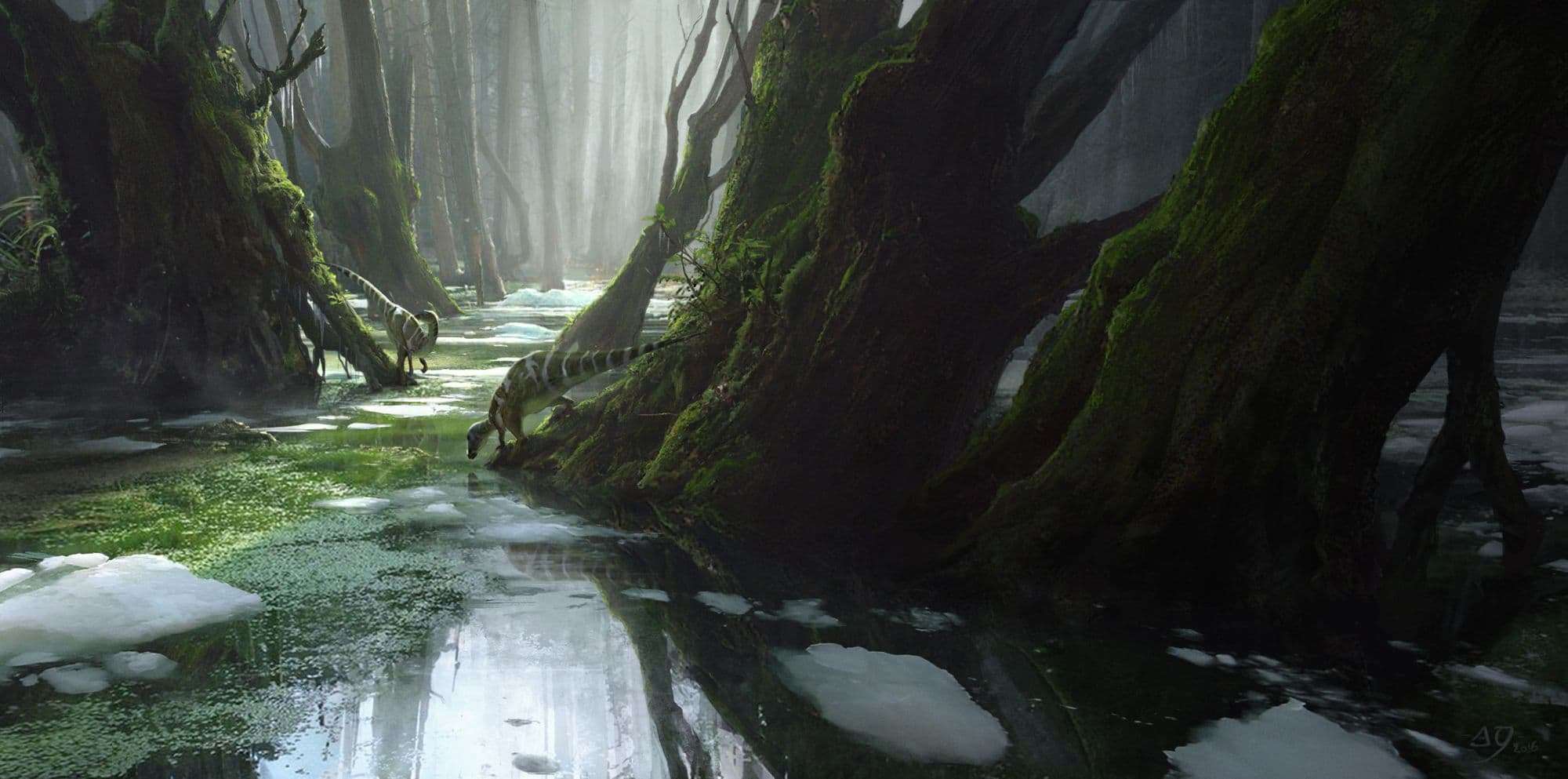
If you could give one piece of advice to artists starting out, what would it be?
To first set yourself a goal, it's going to drive your decisions and help get closer to that goal. Then, with that goal in mind build a portfolio and post it online on many social platforms like Artstation for your work to be visible and have the chance to get noticed. Finally, practice is the key and don't be afraid to fail because it's how you learn.
If you could go back in time to when you first started out, what advice would you give yourself?
To have more confidence in myself :)
You can find more of Gaëlle's work on ArtStation and Instagram.
